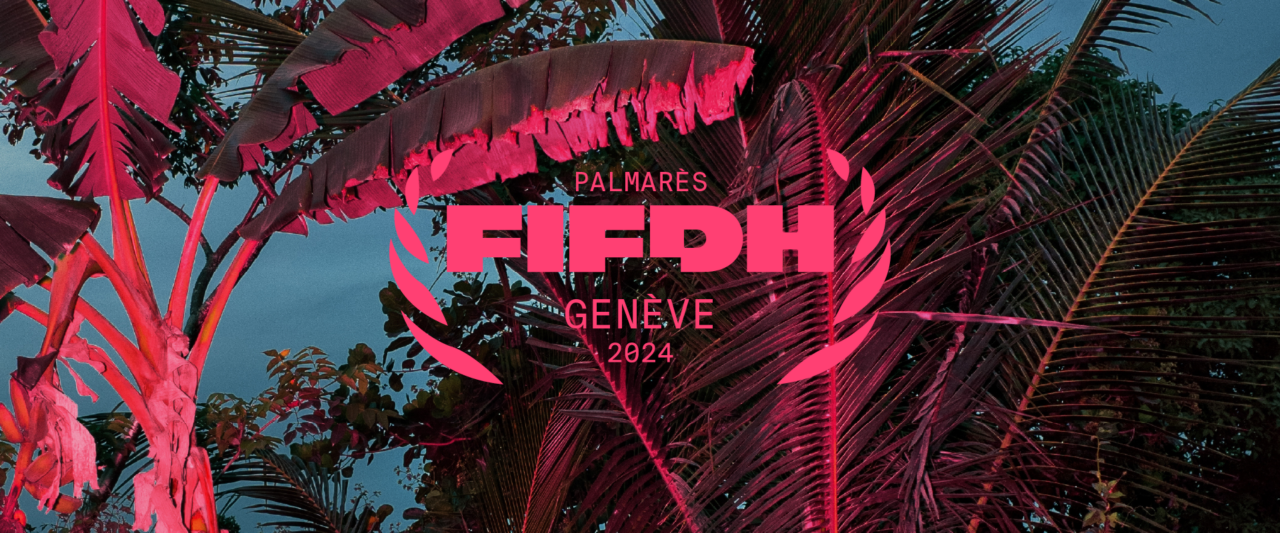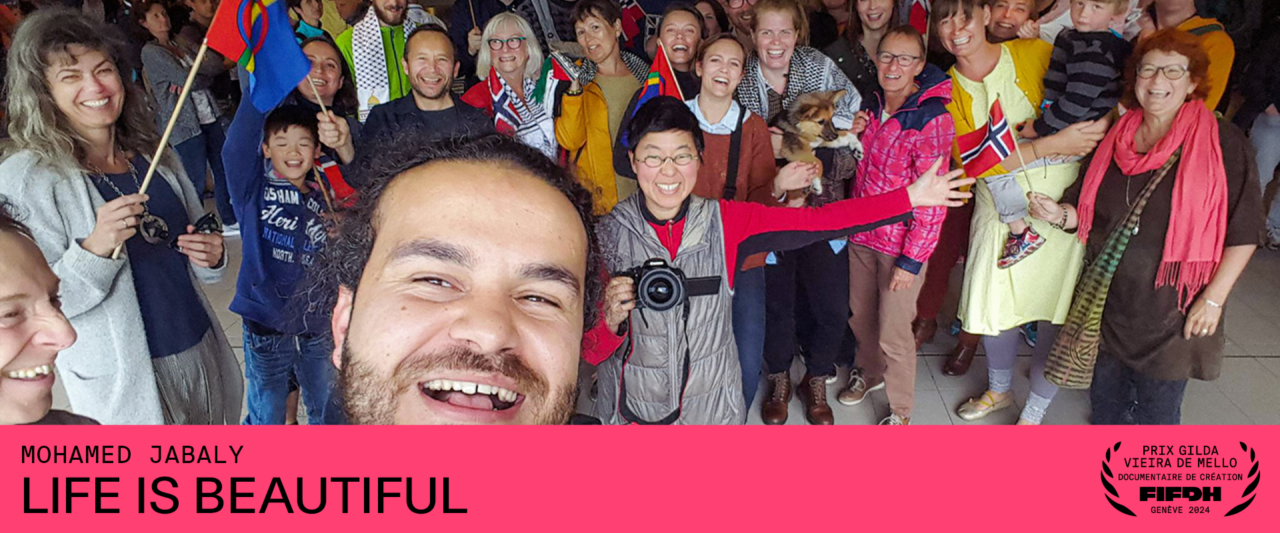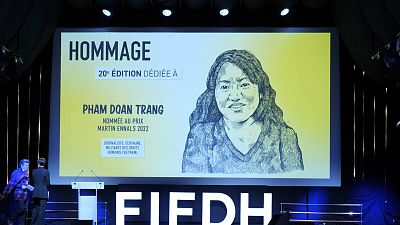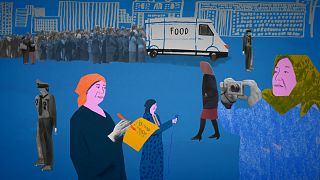
On 14 March 2024, the FIFDH published the film awards for its 2024 Festival. They include:
Gilda Vieira de Mello Prize

provides a moving account of the daily life of Mohamed Jabaly, who is stranded in Norway after the closure of Gaza’s borders. A call for freedom of movement, but above all freedom to pursue your dreams. “Gaza as depicted in Life is Beautiful no longer exists. Its streets, squares and the faces that populate filmmaker Mohamed Jabaly’s memories have been eradicated in the ongoing genocide in Palestine. What we are left with are the images that tell of the past, already under Israeli occupation. The violence of the borders, but also the solidarity and determination of an individual to lead a dignified existence. Cinema becomes the compass of an odyssey that takes us all to Gaza.”
Prize of the World Organisation Against Torture (OMCT)

Total Trust follows the daily lives of activists who are watched and oppressed by the Chinese government through the use of technology, artificial intelligence and human rights. “Unveiling what appears to be a real-life Orwellian 1984 scenario, the documentary vividly portrays the persecution of Chinese human rights defenders and exposes the use of cutting-edge state surveillance technology tools to tightly control the lives of millions of people. This disconcerting image of rising authoritarianism prompts an important question: “Is a future controlled by technology, where we are no longer free to exercise our rights, a real risk for us all?” The prohibition of torture is what allows individuals to shape their personality and views, and establish their dignity, which is the very essence of being human.”
In March 2024, also noteworthy is that at the Thessaloniki International Documentary Festival the top prize in the International Amnesty Award competition went to Maciek Hamela’s Oscar-shortlisted In the Rearview. Hamela shot his film almost entirely within the confines of a van evacuating Ukrainian civilians fleeing the Russian invasion of their country. [https://deadline.com/2024/03/thessaloniki-internationa-documentary-festival-2024-awards-my-stolen-planet-stray-bodies-1235860706/]
For the full table of FIFDH winners, see:
This post was originally published on Hans Thoolen on Human Rights Defenders and their awards.




